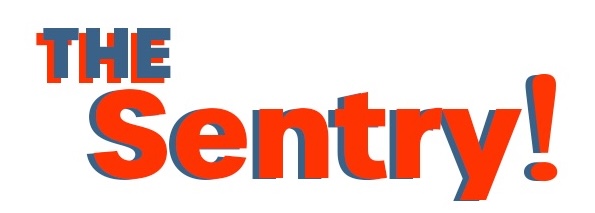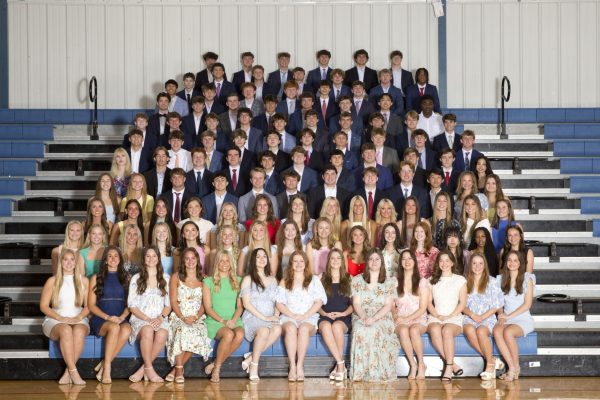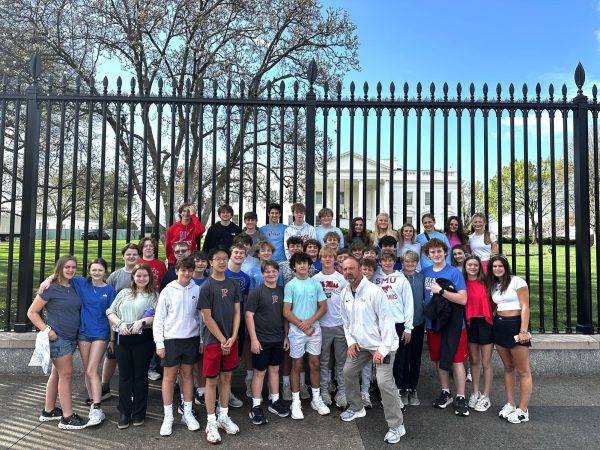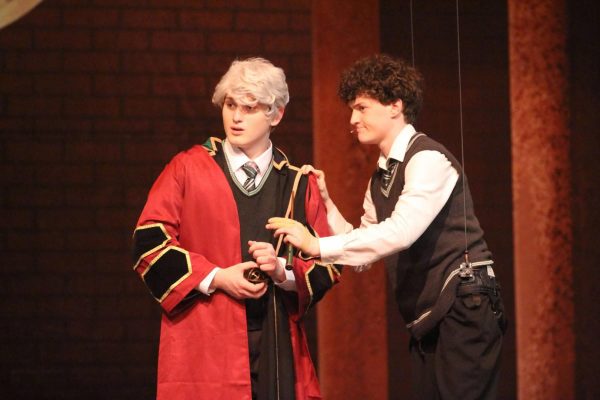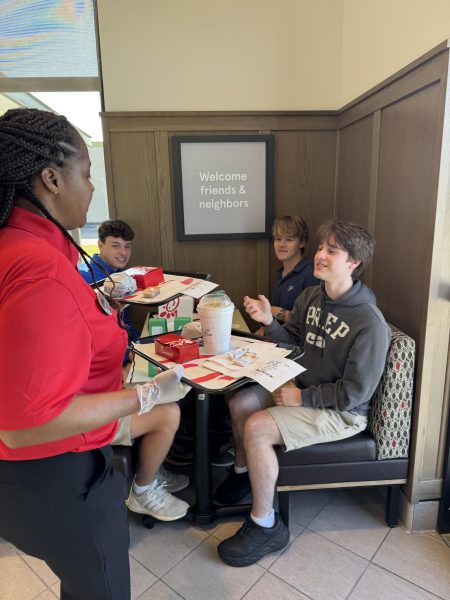Economics teaches students how to dive into Shark Tank
From Issue 3
On Wednesday October 26th, Senior AP Economics students swam with the sharks, metaphorically speaking at least.
Since late July, students have been avidly working on an entrepreneurial Shark Tank project. Each of the forty-eight students were asked to create a product proposal. All of the business propositions were compiled into a document where students ranked their favorite ideas.
The students with the highest rankings became leaders of a group of four. The remaining students were filed into a group based on his or her interests.
For ten weeks, students molded their Shark Tank. Through an online startup composer called Launchpad, the groups learned about all the necessary tools that go into building a company.
Students started with a business model canvas in which they had to figure out their value proposition, customer segments, key resources, channels, revenue streams, etc.
Each student had to do five customer interviews per week. Some interviews were acquired through contact with friends or local stores. Others were done over the phone to out of state corporations while businesses in China and Japan were emailed.
John Nix Arledge said, “I thought customer interviews really helped in that they would point out things that we had never thought of as well as give us honest opinions on our product and if they would use it or not.”
Students also had to give weekly presentations on the update of their Shark Tank in preparation for the final presentation.
Dresses, business suits, and ties flooded Mantel, a Fondren business startup supporter, where the presentations took place.
Students presented their project to five sharks. Each group had a detailed powerpoint and commercial as well as a variety of visual aids.
After Brady Culbertson’s presentation, he said, “I think it was a nice learning experience to make me realize that I never want to do anything like that again in my life. It was a stressful moment in my life, and I am glad that it’s done.”
Students received either a yes, no, or not yet from each of the sharks as to whether or not their idea would receive an investment.
Team Safe Seat, which focused on preventing child car seat heat suffication, came in first place with a unamious yes. Prevention for Life (P.F.L.) vending machine breathalyzers came in second with four yeses, and Cozy Pillow followed in third with three yes votes.
Regardless of the results, many students said they enjoyed the project and learned the importance of working together with their classmates.
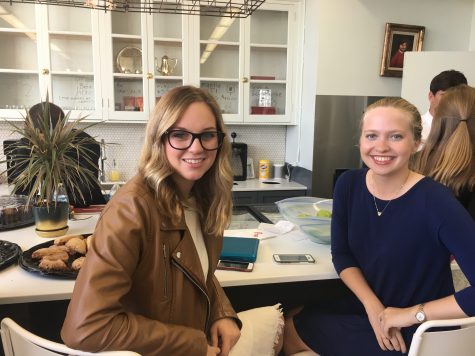
Seniors (left to right) Marion Sapen and Mary Dunbar prepare for their presentation at Mantle. Their product was a sunscreen app that used location services to provide notifications on how often one should apply sunscreen and what SPF one should use. Photo by Chatham Kennedy
